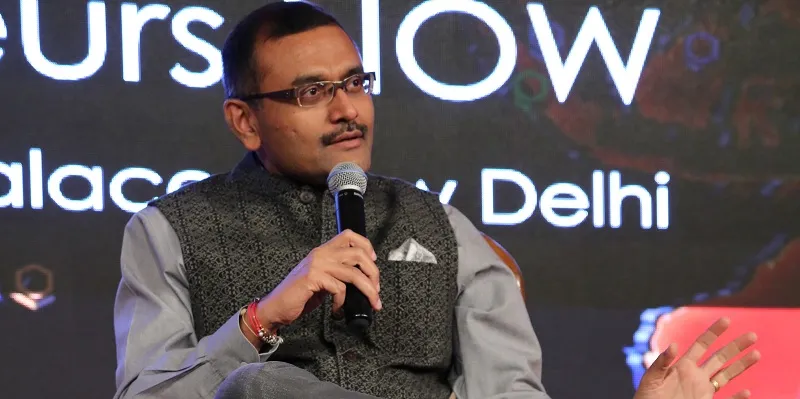Deep Nishar -- like father, unlike son
My dad never went to school. He was a self-made man who had started his own business. He wanted me to start a business, but I got into IIT. He asked me what would I do after engineering, and when I said I would get a job he wondered, what would I do with that?
, said Deep Nishar, MD at Softbank, at a Fireside chat with Sanjeev Bikhchandani, Founder and VC of InfoEdge, at the TiE Global Summit.

Something smells fishy
Prior to starting his own venture and turning into a VC, Deep, an engineer and an MBA from Harvard Business School, worked at Google and LinkedIn.
For the most part, Deep’s journey has been that of any Indian moving to the US. He took an education loan to get into Harvard. “My father didn't like the idea of me taking a loan or any kind of debt,” said Deep.
Ten years later when he started his own business, his father asked if he needed any help. Deep explained the concept of VC firms to his father:
“My father said - Dal mein kuch kala hai. Someone is willing to give you money for very little equity. It doesn't make sense.”
Deep’s father might have known very little about engineering or VC but he gave Deep one of the best business advices.
“There is only one rule in business. If you put in Rs 1, you need to make at least Rs 1.30 within a year.” It was something Deep took with him throughout his entrepreneurial and investment journey.
Entrepreneurship to employment
He started a data analytics platform in the US, which was there for three years. After which, 9/11 happened and they couldn't raise money. Thus, they returned the money back to the investors.
Deep joined Google after that, where he headed product strategy for the Asia-Pacific region. Deep said, “When I joined, there were 800 people and when I left there were 40,000. People worked on the most innovative products. The experience at Google taught me a lot.”
After that, there was no looking back for Deep. He went to work with top global firms before joining Softbank.
Being a patient investor
The thing Deep found interesting about Softbank was that it always takes a long view. “Look at Alibaba, we waited 15 years. We are patient investors for companies that need it. And Indian companies need it,” said Deep.
While Softbank has been silent over the past year, Deep believes that they currently are very bullish about India and are closely looking at the IoT and AI space.
Speaking of the current conversation of protectionism and capital dumping Deep said:
If you remember, one time in India the choice of cars was Premier Padmini and Ambassador. Free market is what builds an ecosystem and I have been a believer of free markets. But at one point, the car manufacturers in the West in the 80s created checks in place. For free markets to thrive you need a level playing field.







